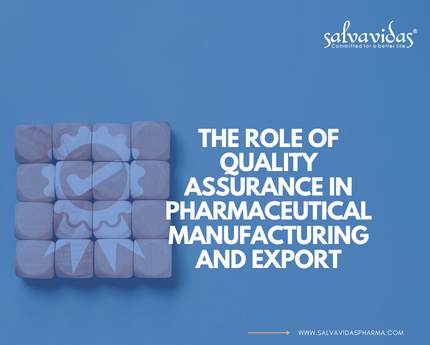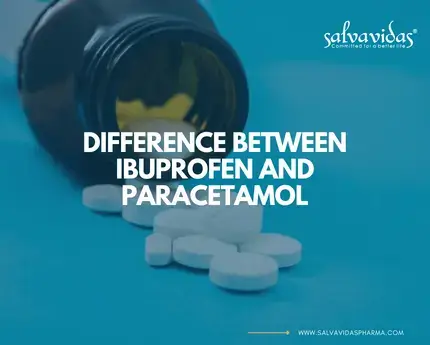
The Role of Quality Assurance in Pharmaceutical Manufacturing and Export
Introduction:
The pharmaceutical industry is one of the most regulated and scrutinized industries in the world, due to the critical role that drugs play in human health and well-being. To ensure that these drugs are of the highest quality and safety standards, quality assurance (QA) plays a vital role in pharmaceutical manufacturing and export.
Quality assurance is the process of verifying that products meet the specified quality standards before they reach the market. In the pharmaceutical industry, QA is a critical aspect of the drug development process, from the initial research and development phase to the final product release.
What is the Purpose of Quality Assurance in Pharmaceutical Manufacturing?
Quality assurance in pharmaceutical manufacturing serves several important purposes. Firstly, it helps to ensure that the drugs manufactured are of high quality, safe, and effective for the intended use. Secondly, it helps to prevent drug recalls and other issues that can result in damage to the reputation of the manufacturer and the industry as a whole. Finally, it helps to meet the regulatory requirements set by national and international organizations, such as the Food and Drug Administration (FDA) and the European Medicines Agency (EMA).
What are the Key Components of a Quality Assurance Program in Pharmaceutical Manufacturing?
A comprehensive quality assurance program in pharmaceutical manufacturing includes several key components:
- Quality Control (QC): QC involves the testing and inspection of raw materials, intermediates, and finished products to ensure that they meet the specified quality standards.
- Validation: Validation is the process of verifying that the manufacturing processes and equipment used in the production of drugs are capable of consistently producing high-quality products.
- Documentation Control: Documentation control involves maintaining accurate and up-to-date records of all activities related to the manufacture of drugs, including raw material specifications, manufacturing processes, and test results.
- Change Control: Change control is the process of managing and controlling changes to manufacturing processes, equipment, and products to ensure that they continue to meet the specified quality standards.
- Complaint Handling: Complaint handling is the process of receiving, investigating, and resolving customer complaints related to the quality of the drugs manufactured.
What are the Benefits of Implementing a Quality Assurance Program in Pharmaceutical Manufacturing?
Implementing a comprehensive quality assurance program in pharmaceutical manufacturing provides several benefits, including:
- Improved Product Quality: By consistently monitoring and controlling the quality of raw materials, intermediates, and finished products, manufacturers can ensure that the drugs produced are of high quality and safety standards.
- Enhanced Customer Confidence: By demonstrating a commitment to quality, manufacturers can build and maintain customer confidence in their products and the industry as a whole.
- Reduced Risk of Recalls: By implementing quality assurance measures, manufacturers can reduce the risk of drug recalls and other quality-related issues, which can result in significant financial losses and damage to reputation.
- Compliance with Regulatory Requirements: By meeting the regulatory requirements set by national and international organizations, manufacturers can avoid costly penalties and legal actions.
What are the Key Regulations Governing Quality Assurance in Pharmaceutical Manufacturing and Export?
There are several national and international regulations governing quality assurance in pharmaceutical manufacturing and export, including:
- Good Manufacturing Practices (GMP): GMP is the minimum standard that pharmaceutical manufacturers must meet to ensure that the drugs they produce are of high quality and safety standards.
- Good Laboratory Practices (GLP): GLP is the standards that govern the testing of drugs in the laboratory, to ensure that the results are accurate and reliable.
- Good Clinical Practices (GCP): GCP are the standards that govern the conduct of clinical trials, to ensure that the safety and rights of study participants are protected.
- International Conference on Harmonisation of Technical Requirements for Registration of Pharmaceuticals for Human Use (ICH): The ICH is an international organization that develops and promotes harmonized guidelines for the development, registration, and post-approval of pharmaceuticals.
- World Health Organization (WHO): The WHO is an international organization that provides guidelines and standards for the manufacture and distribution of pharmaceuticals, to ensure that they are of high quality and safety standards.
FAQs on The Role of Quality Assurance in Pharmaceutical Manufacturing and Export
Q. What is the role of quality assurance in the pharmaceutical industry?
A. The role of quality assurance in the pharmaceutical industry is to ensure that the drugs produced are of high quality, safe, and effective for the intended use. Quality assurance also helps to prevent drug recalls, meet regulatory requirements, and maintain customer confidence in the products and the industry as a whole.
Q. What are the benefits of implementing a quality assurance program in pharmaceutical manufacturing?
A. The benefits of implementing a quality assurance program in pharmaceutical manufacturing include improved product quality, enhanced customer confidence, reduced risk of recalls, and compliance with regulatory requirements.
Q. What are the key components of a quality assurance program in pharmaceutical manufacturing?
A. The key components of a quality assurance program in pharmaceutical manufacturing include quality control, validation, documentation control, change control, and complaint handling.
Q. What are the key regulations governing quality assurance in pharmaceutical manufacturing and export?
A. The key regulations governing quality assurance in pharmaceutical manufacturing and export include Good Manufacturing Practices (GMP), Good Laboratory Practices (GLP), Good Clinical Practices (GCP), International Conference on harmonization of Technical Requirements for Registration of Pharmaceuticals for Human Use (ICH), and World Health Organization (WHO).
Conclusion:
Quality assurance is a critical aspect of the pharmaceutical industry, as it helps to ensure that the drugs produced are of high quality, safe, and effective for the intended use. By implementing a comprehensive quality assurance program and meeting regulatory requirements, pharmaceutical manufacturers can build and maintain customer confidence, reduce the risk of recalls, and comply with national and international standards. The Role of Quality Assurance in Pharmaceutical Manufacturing and Export is essential for ensuring the safety and well-being of the general public, and it should be a top priority for manufacturers and regulators alike.




0